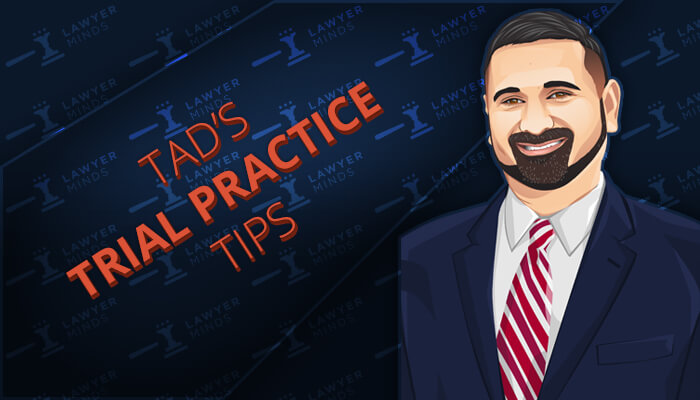How to Improve Your Legal Writing as a Trial Attorney

Join me as I talk tips for upping your trial performance. I’ll cover all aspects of the trial, including jury selection, opening statements, direct witness testimony, cross-examination, closing arguments, jury instructions, and verdicts. Discussions are welcome in the comments section.
— Tad Thomas
As a trial attorney, communication is paramount. You may have your verbal communications skills down pat in the courtroom, but have you thought about how you convey yourself and your ideas via writing? Writing is like a muscle; it’s a skill you need to work on to maintain and improve. When it comes to legal writing, you need to be able to convey your knowledge of the law in a clear, concise, and often persuasive format. So, whether you’re looking to brush up on your skills or learn something new about writing as a legal professional, keep reading.
The Basics of Great Writing
No matter your personal writing style, you need to make sure your work is credible. You may have all the facts down on paper, but your message won’t be conveyed in the way you intended if your writing lacks clarity.
No matter what type of document you’re creating, you should be considering the identity of your reader, the relationship you have with the reader, and your overall goal of writing. For example, are you looking to persuade someone? Or inform? Is there another goal to keep in mind? Those questions will help you lay out your ideas in the most appropriate manner.
In addition to knowing why you’re writing and who you’re writing for, it’s crucial to have a solid grasp of language and grammar. So be on the lookout for the following as you write and revise:
- Write in the active voice. Many writers unintentionally write in passive voice. It’s important to use active voice as much as possible for clarity’s sale.
- Pay attention to word placement and verb tense. When it comes to word placement and verb tense, there are rules you should follow. For example, try to put modifying words as close to the words you’re modifying as possible. You should also ensure your singular and plural subjects have coordinating verbs.
- Know how to use commas. It may seem trivial, but grammar is crucial. Many writers have a habit of simply placing a comma where they would naturally pause to breathe. However, that tends to be grammatically incorrect. Review the rules on commas to ensure your writing is correct.
- Avoid ambiguity. When you write, you want what you say to be intentional and clear. If you use ambiguous words at the start of sentences or fail to define legal jargon, your reader could walk away confused.
- Review your work in multiple ways. When you finish writing a piece, step away from it before you start editing. If the words are too fresh in your mind, you could miss simple errors. When you return to the document, consider reading the work out loud to catch misspellings, grammatical errors, and clarity issues. You could also consider having someone peer-review your work to ensure correctness.
Legal Writing Resources for Attorneys
If you’re looking to improve your legal writing, there are numerous resources out there for trial attorneys. For starters, if you’re looking to use an in-document program, Grammarly could be for you. Let’s face it, Microsoft Word’s grammar check isn’t as advanced as it could be. Grammarly’s features include grammar checking, punctuation correction, spell checking, plagiarism detector, vocabulary enhancement, writing style checking, and readability scores. While it’s still important to manually review documents, Grammarly can make the process easier by catching errors fast.
If you’re looking for more traditional legal writing guides, Georgetown University Law School’s Legal Writing Center has books and style guides that can benefit almost all legal writers. Adobe also has a legal style guide that lays out the prescribed styles and standards of formatting, typography, and more. In addition to Georgetown University and Adobe, Garner’s Dictionary of Legal Usage is considered one of the most authoritative sources for spelling and usage disputes. The most recent edition features thousands of entries and quotations from judicial opinions and leading law books.
It’s no secret that legal writing is challenging. To improve, you need to put in the time; but your efforts can pay off. Great writing can improve your law practice, as well as your career as a trial attorney. With clear, structured writing, your intended reader will have what they need to grasp the point you’re making.

